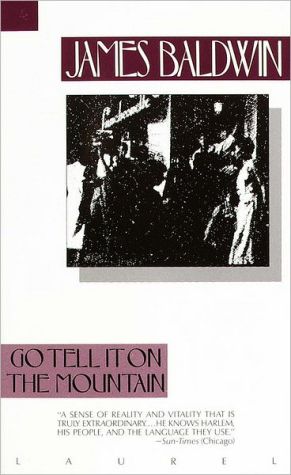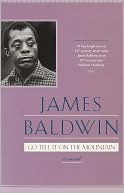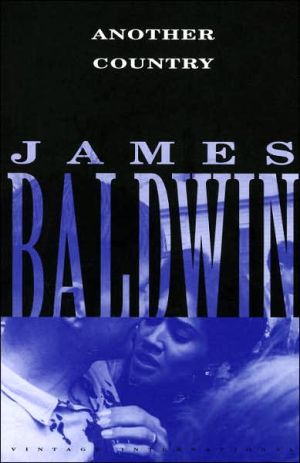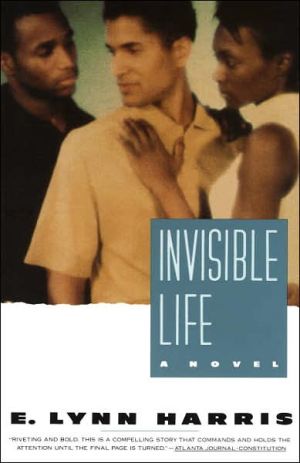In Another Place, Not Here
Dionne Brand's luminous debut novel, In Another Place, Not Here, tells of two contemporary Caribbean women - one urban, passionate, and idealistic, the other constrained by disillusion and rural poverty, each in her own spiritual exile - who find brief refuge in each other on an island in the midst of political uprising. Elizete dreams of running to another place to escape the harshness of her daily life on the island. Knowing better than to hope for much, she lives in a world of lush...
Search in google:
Acclaimed by Adrienne Rich as "fierce, sensuous . . . a work of great beauty and moral imagination," In Another Place, Not Here tells of two contemporary Caribbean women who find brief refuge in each other on an island in the midst of political uprising. Elizete, dreaming of running to another place to escape the harshness of her daily life on the island, meets Verlia, an urban woman in constant flight who has returned to her island birthplace with hopes of revolution. Their tumultuous story moves between city and island, past and future, fantasy and reality.Glenn TownesIn Another Place, Not Here is a splendid debut by a poet and essays turned novelist. . . Although Brand's book may not become as enormously successful as those of her contemporary predecessors, her novel is certainly worthy of critical praise and recognition. Among other things, readers will enjoy the humility and sensitivity found within [the book]. -- Quarterly Black Review
\ From Barnes & NobleDionne Brand's recently published novel, In Another Place, Not Here, is the gently written debut by a Trinidad-born writer, who manages to create nirvana for two Caribbean women. The women, Elizete and Verila, each come from myriad and murky pasts. Says Elizete, "I never wanted nothing big from the world." Elizete professes her love for Verila early in the book. In writing about homosexuality and African-American women, or in this case Caribbean women, Brand has ventured into new territory for African-American readers.\ \ \ \ \ Glenn TownesIn Another Place, Not Here is a splendid debut by a poet and essays turned novelist. . . Although Brand's book may not become as enormously successful as those of her contemporary predecessors, her novel is certainly worthy of critical praise and recognition. Among other things, readers will enjoy the humility and sensitivity found within [the book]. -- Quarterly Black Review\ \ \ Publishers Weekly\ - Publisher's Weekly\ Two worlds collide in this intense, sensuous first novel from a filmmaker, poet and essayist who was born in Trinidad and now lives in Canada. Both of the worlds are familiar to Caribbean-Americans: the verdant lushness of the islands, and the large but claustrophobic North American cities that beckon and ultimately disillusion the immigrants who try to make new homes in them. The narrator of the first part of the novel, Elizete, ekes out a miserable existence as a sugarcane cutter on the island of Trinidad. Little has changed for these laborers since the harsh days of sugar plantations. When Verlia, a cosmopolitan Marxist, returns to the island to organize the field hands and spread the word of her Black Power Movement, she captivates Elizete's imaginationand her heart. As the two women become lovers, Elizete's passion for the natural world complements Verlia's vocation as an activist. Verlia narrates the second part of the novel, which chronicles the painful years she endured as an immigrant in Toronto. Brand's faithfulness to island dialect sometimes distracts from the sensuous descriptions and simple politics of her tale. But she evokes the privations of island life and captures the loneliness and constant fear of deportation that define the islanders' immigrant experience; the assimilation of blacks into white culture and the consequent fear of losing their core identities; the camaraderie among the socialist "sisters and brothers." In her hands, the melding of Elizete's dreams and Verlia's fierce pragmatism achieve a powerful resonance. Foreign rights: Women's Press; performance rights: Bukowski Agency. (Oct.)\ \ \ \ \ Library JournalElizete lives on an unnamed Caribbean island and has worked the cane fields from morning to night for as long as she can remember. Given to a virtual stranger by a birth-family that could not bear another mouth to feed, she has had a life of hardship and deprivation mediated by occasional small kindnesses. Verlia, another Caribbean-born woman, fled the islands for Canada at 17 and has spent 18 years among left-wing activists hoping to foment social change. Both women share profound feelings of dislocation and disillusion, and for a brief instantwhen Verlia travels to Elizete's island to participate in an incipient revolutionary effortthe two find solace in each other. While the novel follows a jagged course that delves into the tormented souls of both characters, its plot is less compelling than its poetic, dream-filled musings. Brand, a Trinidad-born filmmaker and writer living in Canada, has written a masterful, if nonlinear, expos about Caribbean poverty, cultural displacement, and human need. Both haunting and beautiful, this is recommended for most collections.Eleanor J. Bader, New Sch. for Social Research, New York\ \ \ \ \ NY Times Book ReviewA first novel, passionately attentive to nuance, that explores the transit between the Caribbean and North America through a love affair between two women.\ \ \ \ \ Kirkus ReviewsA first novel from Trinidadian-born Brand, now living in Canada, that's more prose poem than conventional fiction, unevenly evoking the relationship of two Caribbean women caught up in a revolution.\ The account of Elizete and Verlia's meeting, their love, and their tragic parting is told in sections that are an uneasy mix of poetic dreams on the one hand and politics on the other (Marx, Che, Fanon, and other Left-ish idols are quoted). Elizete, abandoned by her mother, begins with her memories of being brought up by a childless woman who told her stories of the slaves and their secret rebellions. When the woman died, Elizete was "given" to Isaiah, a brutal farmworker who beat and raped her. But her miserable life spent satisfying Isaiah by night and cutting cane by day changes when Verlia arrives from Canada. Verlia has come to organize the local cane-workers. (The island is nameless, but it's history resembles that of Grenada.) The two women fall in love, and after the uprising fails, Elizete heads to Toronto in search of Verlia, who by then has disappeared. In Toronto, she experiences anguish and repeated (and melodramatic) indignities. The rigidity of the political subtext—the wickedness of whites and the inadequacies of men—repeatedly subverts the story. After many travails, Elizete arrives at a center run by Abena, a former lover of Verlia's. Verlia, also Caribbean-born, in turn describes her feelings of alienation from her birthplace; her journey to Canada, which ended not in a college education but in service in of the political movement; the comfort of Elizete's affection; and the failure of the revolution she helped make. Love like theirs is doomed, and as the revolt is quashed, Verlia, it turns out, has come to a bitter end.\ Luminous prose and some on-target insights into the immigrant experience, but the polemic and the passion seem more contrived, however artfully addressed, than fresh and persuasive.\ \ \








